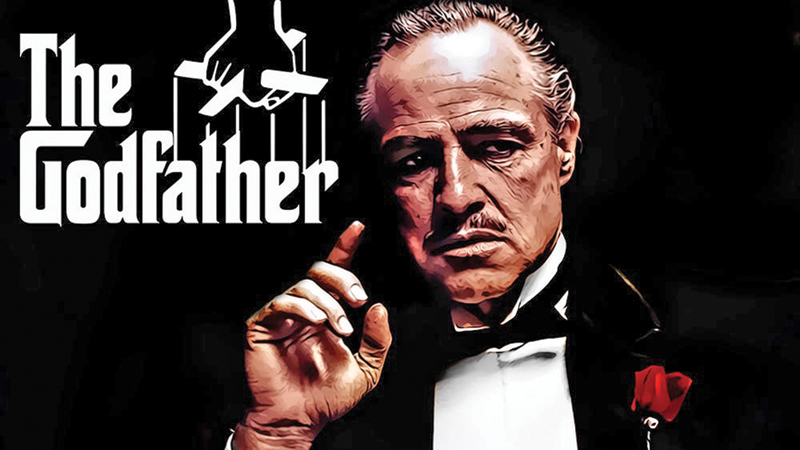“The Godfather”, directed by Francis Ford Coppola and released in 1972, stands as an iconic film in the history of cinema.
Adapted from Mario Puzo’s 1969 novel of the same name, the movie tells the story of the Corleone family, a powerful Italian-American mafia clan, and their patriarch, Don Vito Corleone. With its compelling narrative, unforgettable characters, and exceptional direction, “The Godfather” has earned its place as a classic of American cinema.
At its core, “The Godfather” is a complex and layered family drama set against the backdrop of organized crime. The story begins with the extravagant wedding of the Don’s daughter, Connie Corleone, but it doesn’t take long for the audience to understand that the Corleone family is deeply enmeshed in the world of organized crime.
The film’s central conflict revolves around the patriarch of the family, Don Vito Corleone, and his struggle to maintain the family’s power and honor while confronting threats from rival mafia families and outside forces. Vito’s three sons, Michael, Fredo, and Sonny, each have their roles to play in the family business, and the film explores how they navigate this perilous world.
Francis Ford Coppola’s direction is nothing short of brilliant. The film is a masterclass in storytelling, featuring a compelling narrative structure that interweaves personal and criminal elements seamlessly.
Al Pacino, who plays Michael Corleone, delivers a captivating performance as the reluctant son who becomes embroiled in the family’s criminal activities. His transformation from a war hero with a sense of morality to a cold, ruthless figure is compelling and tragic.
The Corleone family’s code of loyalty is explored in great detail, emphasizing the significance of maintaining a façade of honor even while engaging in ruthless criminal activities.
Morality is another central theme of the film. Michael Corleone’s character arc, in particular, illustrates the moral compromises and transformations that can occur when one is drawn into a world of crime. The film poses a profound question: Can a person maintain their moral compass in a world that demands ruthless pragmatism?
The film’s success also spawned two sequels, “The Godfather Part II” and “The Godfather Part III,” both of which continued to explore the Corleone family saga and garnered critical acclaim.
“The Godfather” is more than just a movie; it’s a work of art that has left an indelible mark on the world of cinema. Francis Ford Coppola’s brilliant direction, coupled with exceptional performances by the cast, brought to life a story of power, loyalty, and morality that continues to captivate audiences to this day. It remains a testament to the enduring power of storytelling and the enduring legacy of a true cinematic masterpiece.









